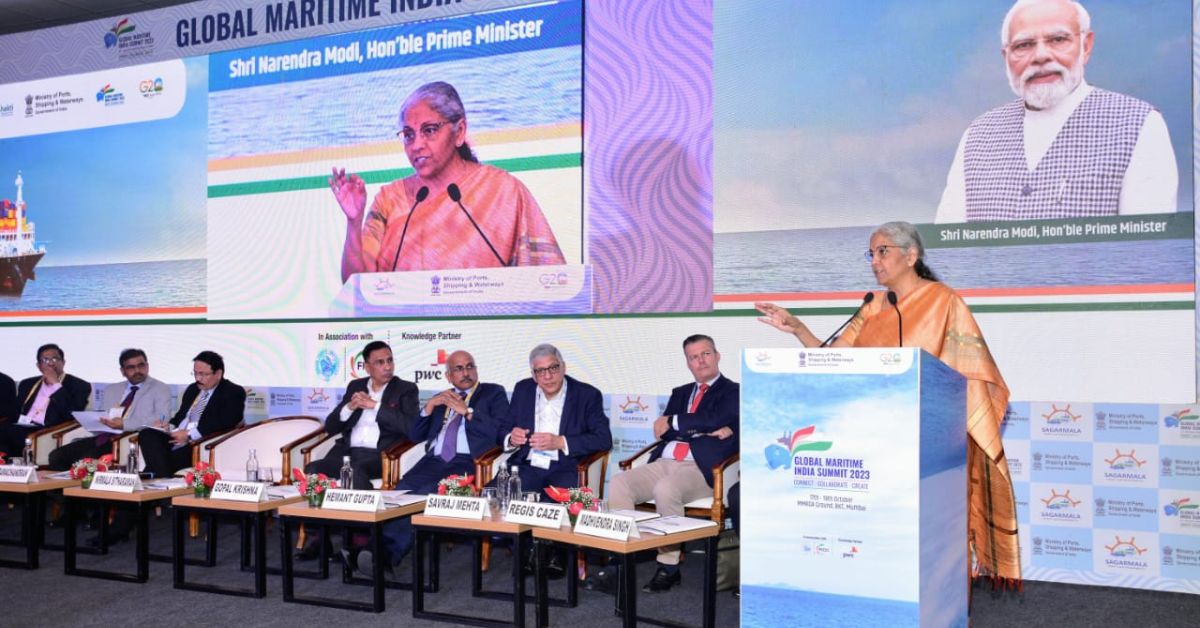The Finance Minister Nirmala Sitharaman has favoured setting up of a protection and indemnity entity owned and based locally to cut India’s vulnerability to international sanctions and pressures besides providing greater strategic flexibility in the country’s shipping operations.
“A need has been felt to have a full fledged India owned and India based P&I entity. I would think it is important to have a P&I entity of India’s own ownership,” the Finance Minister said while speaking at the Global Maritime India Summit being held in Mumbai.
“This would be one of the important suggestions that would come (from the shipping industry and the Ministry of Ports, Shipping, and Waterways) for the Finance Ministry to take it forward,” she said.
Explaining what that means to India, She said, ” It would reduce India’s vulnerability to international sanctions and pressures to provide greater strategic flexibility in shipping operations”.
“It would also provide a foothold into the specialised segments of P&I business which is currently dominated by very few players internationally where presently India doesn’t have a presence”.
“I would think that it is a very important thing which we need to work on. It would also provide protection of liabilities to ships operating in coastal waters as well as inland waterways during their operations”, she stated.
In shipping, third-party liabilities arising from operating ships such as oil pollution, wreck removal and damage to port property are commonly referred to as protection and indemnity (P&I) insurance.
Globally, such third-party risks are insured with the International Group of Protection and Indemnity Clubs (IG Clubs), a 13-member group based in London that provides liability cover to about 95 per cent of the world’s ocean-going ships by capacity (tonnage), placing a $1-billion limit on individual claims that involve pollution damage and wreck removal.
India struggled to get tankers and insurance to transport crude from Russia after the member states of the European Union prohibited insurers from covering tankers carrying Russian oil anywhere in the world following the Kremlin’s invasion of Ukraine.
India still managed to ramp up oil purchases from Russia to take advantage of the heavily discounted supplies with ships and insurance arranged by Moscow.
The Finance Minister said that there are a lot of challenges globally. “There are a lot of challenges from the point of view of the insecurities of the supply chain and disruption in the supply chain,” she noted.
This was a case which most of us clearly recognised even after the COVID supply chain disruptions and containers not being available. After a point, the disruptions were so unpredictable that the government could not plan anything for the industry, she explained. Shipments of major commodities are at risk sometimes, food and energy insecurities all creep in because of it, adding to inflation. So, economies which are coming out of COVID are still facing these challenges, she added.







